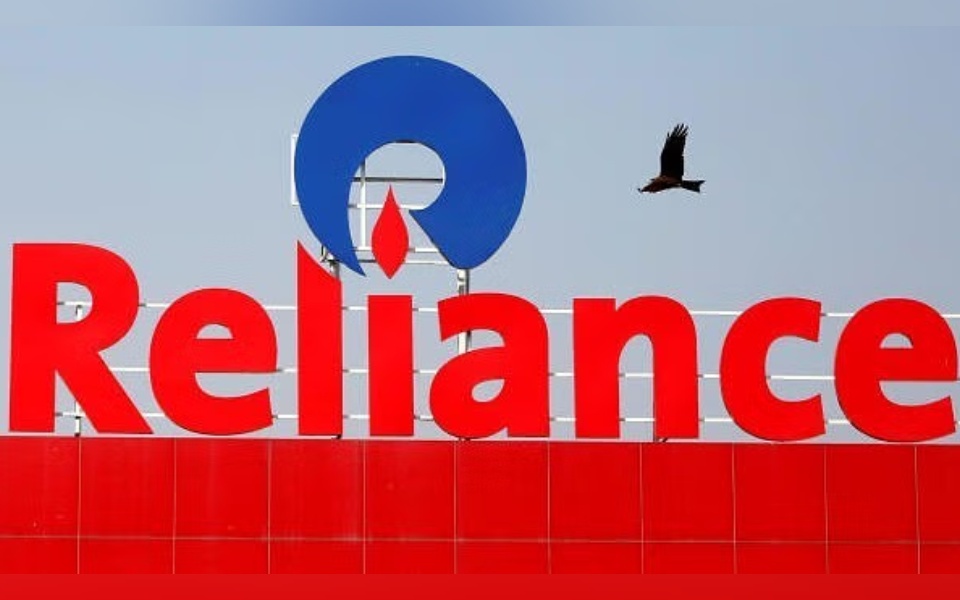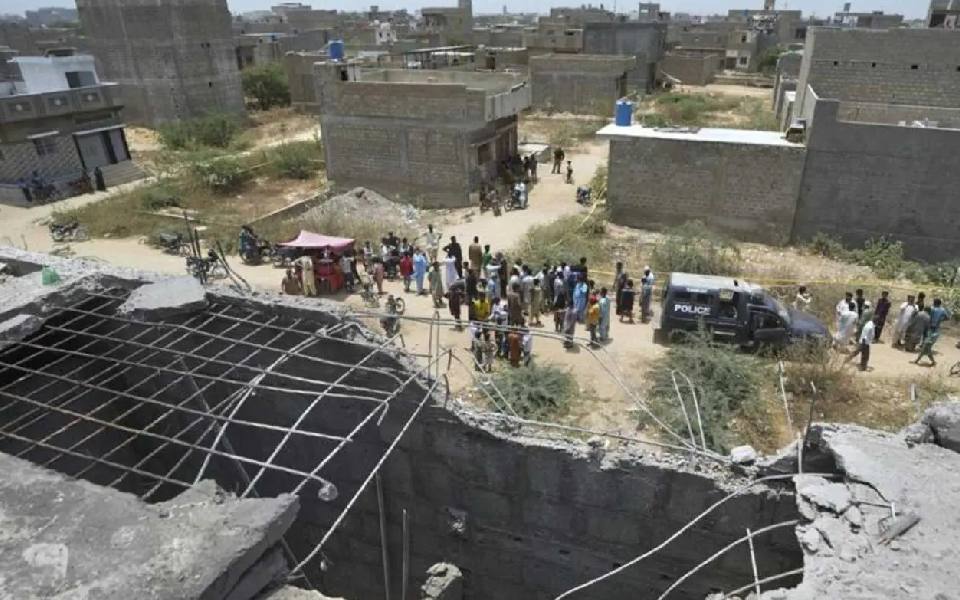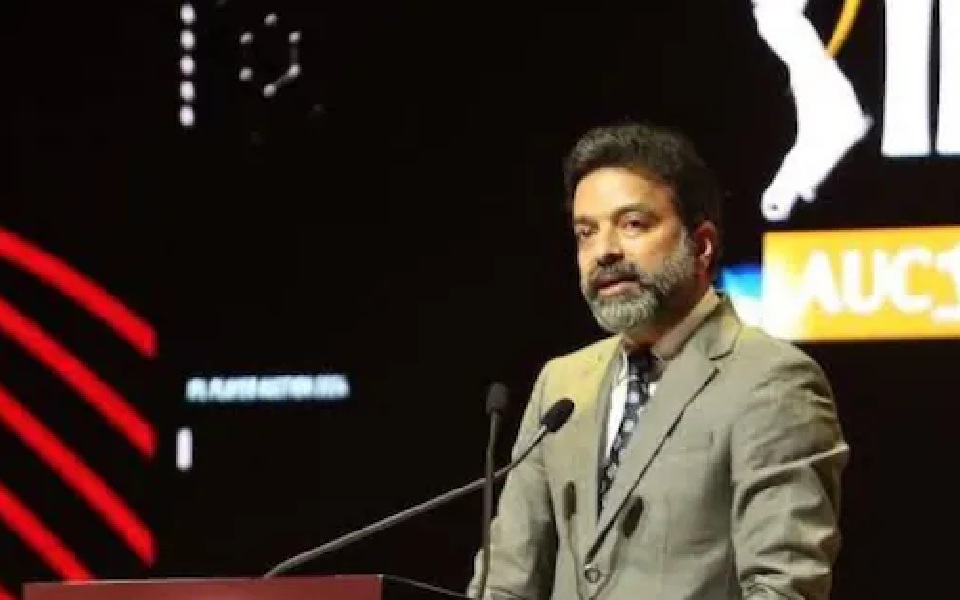New Delhi, Mar 04 (PTI): The government has slapped a $2.81 billion (about Rs 24,500 crore) demand notice on Reliance Industries Ltd and its partners, including BP Plc for gains made from producing and selling natural gas that may have migrated from neighbouring block of state-owned ONGC.
This follows the Delhi High Court's decision on February 14, overturning an international arbitration tribunal ruling that held the duo not responsible for paying any compensation for the gas they produced and sold which had allegedly migrated from adjoining fields.
"Consequent upon the Division Bench judgment, the Ministry of Petroleum and Natural Gas has raised a demand of $2.81 billion on the PSC contractors namely Reliance Industries Ltd, BP Exploration (Alpha) Ltd and NIKO (NECO) Ltd," Reliance said in a stock exchange filing.
Originally, Reliance held 60 per cent interest in Krishna Godavari basin deep-sea block KG-DWN-98/3 or KG-D6 while BP had 30 per cent and Canadian firm Niko held the remaining 10 per cent.
Subsequently, Reliance and BP took over Niko's interest in the production sharing contract (PSC) and now hold 66.66 per cent and 33.33 per cent, respectively.
The government had in 2016 sought $1.55 billion from Reliance and its partners for the quantum of gas that had migrated to its block KG-D6 from adjoining fields of ONGC.
Reliance contested the claims before an arbitral tribunal which in July 2018 upheld that it was not obliged to pay any compensation.
The government filed an appeal and in May 2023, a single judge of Delhi High Court upheld the arbitration award, dismissing the government's appeal. A division bench of the Delhi High Court last month set aside the single judge order, ruling against Reliance and its partners.
Reliance said the letter of demand was received by the company on March 3, 2025.
"The company is legally advised that the Division Bench judgment and this provisional demand are unsustainable. The company is taking steps to challenge the judgment of the Division Bench of Hon'ble Delhi High Court," it said.
"The company does not expect any liability on this account," it added.
Reliance had previously said that it would appeal the decision in the Supreme Court.
The dispute dates back to July 2013 when Oil and Natural Gas Corporation (ONGC) suspected reservoir connectivity of its KG-DWN-98/2 (KG-D5) and G-4 blocks with that of Reliance's KG-D6.
It felt that at least four wells that Reliance drilled on the borderline with KG-D5 may have drained out its resources as well.
ONGC in May 2013 filed a writ in the Delhi High Court seeking compensation for the loss. On September 10, 2014, the Delhi High Court disposed-off ONGC's petition and directed the government to take a decision, after it received a report from an independent panel set up by ONGC and RIL.
Global consultant DeGolyer and Mac Naughton (D&M) was appointed to carry out a third-party study. In its final report dated November 19, 2015, D&M concluded inter-alia that "the integrated analyses indicated connectivity and continuity of the reservoirs across the blocks operated by ONGC and Reliance." The report quantified the volume of gas migrated from Godavari PML and KG-DWN-98/2 to KG-DWN-98/3 block and respective production of gas from migrated volumes till March 31, 2015.
After submission of the D&M report, the government constituted a single member committee on December 15, 2015, composed of former Chief Justice of Delhi High Court Ajit Prakash Shah "to quantify the unfair enrichment" by Reliance.
The committee concluded that the Government of India, and not ONGC, is entitled to claim restitution from Reliance for the unjust benefit it received and unfairly retained.
ONGC has no locus standi to bring a tortious claim against Reliance for trespass/conversion since it does not have any ownership rights or possessory interest in the natural gas. All mineral resources are the property of the government of India.
Using Shah's report, the government asked ONGC to step aside and took over the matter.
The Ministry of Petroleum and Natural Gas (MoPNG) in a November 4, 2026 order sought disgorgement from Reliance and its partners, demanding $1.47 billion from the partners for producing in seven years ending March 31, 2016 about 338.332 million British thermal units of gas that had seeped or migrated from ONGC's blocks into their adjoining KG-D6 in the Bay of Bengal.
After deducting $71.71 million royalty paid on the gas produced and adding an interest at the rate of LIBOR plus 2 per cent, totalling $149.86 million, a total demand of $1.55 billion was made on Reliance, BP and Niko.
The government also pressed Reliance to pay $174.9 million of additional profit petroleum after certain costs were disallowed because of KG-D6 output being lower than the target.
Reliance and its partners on November 11, 2016, slapped an arbitration notice.
In July 2018, the international arbitration tribunal rejected the government's claim. The three-member panel by a majority of 2-1 also awarded $8.3 million compensation to the three partners.
The government challenged the arbitration award before a single bench of Delhi High Court, seeking it be set aside as it "strikes at the heart of the public policy and has given a premium to a contractor (Reliance) that has amassed vast wealth by committing an insidious fraud as well as criminal offence." Delhi High Court in May 2023 upheld the arbitration award saying "the view taken by the arbitral tribunal is most certainly a "possible view", which calls for no interference."
The government approached the division bench of the Delhi High Court against the single bench order. The division bench, comprising justices Rekha Palli and Saurabh Banerjee, on February 15 set aside a May 2023 single bench ruling that had upheld the 2018 arbitration award rejecting the government's claim.
Let the Truth be known. If you read VB and like VB, please be a VB Supporter and Help us deliver the Truth to one and all.
New Delhi, May 8 (PTI): India on Thursday said it foiled Pakistan military's attempts to target military installations in 15 cities in the northern and western parts of the country using missiles and drones as tensions between the two neighbours mounted amid fears of a wider conflict.
Sources in the defence and security establishment said the S-400 missile defence systems, surface-to-air missiles and the integrated counter unmanned aircraft system were used in thwarting the Pakistani attempts.
In its response this morning, India launched kamikaze drones and destroyed a Pakistani air defence system in Lahore.
The defence ministry said the Pakistani military attempted last night to target Awantipura, Srinagar, Jammu, Pathankot, Amritsar, Kapurthala, Jalandhar, Ludhiana, Adampur, Bhatinda, Chandigarh, Nal, Phalodi, Uttarlai, and Bhuj.
The Indian armed forces targeted air defence radars and systems at a number of locations in Pakistan and "neutralised" an air defence system in Lahore, it said.
The Pakistani attempt came after Indian armed forces early Wednesday carried out missile strikes on nine terror targets in Pakistan-occupied Kashmir (PoK) and Pakistan under Operation Sindoor.
"On the night of May 7-8, Pakistan attempted to engage a number of military targets in northern and western India including Awantipura, Srinagar, Jammu, Pathankot, Amritsar, Kapurthala, Jalandhar, Ludhiana, Adampur, Bhatinda, Chandigarh, Nal, Phalodi, Uttarlai, and Bhuj, using drones and missiles," the ministry said.
"These were neutralised by the Integrated Counter UAS (Unmanned Aircraft System) grid and air defence systems," it said in a statement.
"The debris of these attacks is now being recovered from a number of locations that prove the Pakistani attacks," it added.
It said "Indian armed forces this morning targeted air defence radars and systems at a number of locations in Pakistan."
"Indian response has been in the same domain with same intensity as Pakistan. It has been reliably learnt that an air defence system at Lahore has been neutralised," the ministry said.
As tensions between India and Pakistan escalated, Defence Minister Rajnath Singh said no limit will become an obstacle to protect India's sovereignty and the nation is fully prepared for such responses.
He said India has always played the role of a responsible nation exercising great restraint and it believes in resolving issues through dialogue.
"However, if anyone tries to take advantage of this restraint, they will face quality action," he said, assuring the nation that no limit will become an obstacle to protect India's sovereignty.
"We are fully prepared for such responsible responses in the future as well," he said.
The defence ministry said India's anti-terror response on early Wednesday was "focused, measured and non-escalatory" and that Pakistani military establishments had not been targeted.
"It was also reiterated that any attack on military targets in India will invite a suitable response," the ministry said.
It said Pakistan has increased the intensity of its unprovoked firing across the Line of Control using mortars and heavy calibre artillery in areas in Kupwara, Baramulla, Uri, Poonch, Mendhar and Rajouri sectors in Jammu and Kashmir.
"Sixteen innocent lives have been lost, including three women and five children, due to Pakistani firing," the ministry said.
Here too, India was compelled to respond to bring mortar and artillery fire from Pakistan to a halt, it said.
"Indian Armed Forces reiterate their commitment to non-escalation, provided it is respected by the Pakistani military," the ministry said.
In retaliation to the Pahalgam terror attack, Indian armed forces carried out the missile strikes on the terror targets including Bahawalpur, a stronghold of the Jaish-e-Mohammad (JeM) terror outfit.
Foreign Secretary Vikram Misri said on Wednesday that India decided to carry out the "proportionate" strikes to bring the perpetrators and planners of the April 22 Pahalgam terror attack to justice as there was "no demonstrable step" from Pakistan to act against terrorist infrastructure on territories under its control.





